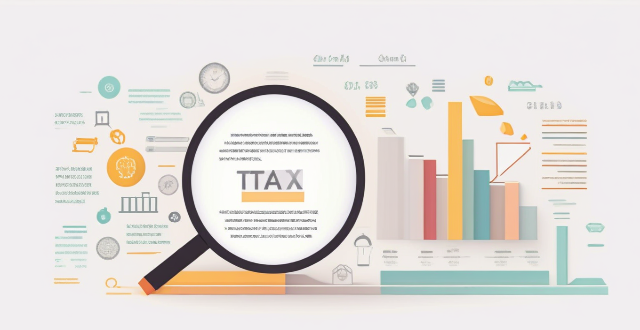Capital Income

What are the tax implications of receiving venture capital investment ?
Receiving venture capital investment can have significant tax implications for a startup company, including the treatment of investment proceeds as ordinary income and potential valuation issues. Tax credits and incentives may be available, and exit strategies should be evaluated for their tax consequences. Additional accounting and reporting requirements may also arise. It is important to work with a qualified tax professional to ensure compliance with tax laws and maximize the benefits of venture capital investment.

What are the tax implications of investing in cryptocurrencies ?
Investing in cryptocurrencies can have significant tax implications that investors should be aware of. Here are some key considerations: ### Capital Gains Tax Capital gains tax is a tax on the profit realized on the sale of an asset. When you sell your cryptocurrency for more than you paid for it, you may owe capital gains tax on the difference between the purchase price and the selling price. The tax rate depends on your income level and how long you held the asset before selling it. - Short-term capital gains tax applies to assets held for less than a year and is taxed at your ordinary income tax rate. - Long-term capital gains tax applies to assets held for more than a year and is typically taxed at a lower rate than short-term gains. ### Income Tax If you earn income from mining or staking cryptocurrency, you may owe income tax on that income. Mining involves using computer processing power to validate transactions on the blockchain and earn new coins as a reward. Staking involves holding coins in a wallet and earning interest or rewards for supporting the network. Both activities can generate taxable income. ### Tax Deductions You may be able to deduct certain expenses related to your cryptocurrency investments, such as trading fees, software costs, and other expenses necessary to maintain your investment. However, these deductions are subject to specific rules and limitations, so consult with a tax professional to ensure you qualify. ### Reporting Requirements The IRS requires taxpayers to report all cryptocurrency transactions on their tax returns, including purchases, sales, trades, and income earned from mining or staking. Failure to report these transactions can result in penalties and interest charges. It's essential to keep accurate records of all your cryptocurrency transactions throughout the year. ### Tax Planning Strategies To minimize your tax liability when investing in cryptocurrencies, consider implementing tax planning strategies such as: - **Holding Assets Long-Term**: By holding your cryptocurrency for more than a year before selling it, you can take advantage of lower long-term capital gains tax rates. - **Harvesting Losses**: If you have losses on some of your cryptocurrency investments, you can offset those losses against gains made on other investments to reduce your overall tax liability. - **Donating Cryptocurrency to Charity**: Donating cryptocurrency to a qualified charity can provide a tax deduction while also supporting a cause you care about. In conclusion, investing in cryptocurrencies has several tax implications that investors should be aware of and plan for accordingly. It's essential to stay informed about changing regulations and consult with a tax professional to ensure compliance with IRS requirements.

What are the key factors to consider when looking for venture capital investment ?
When seeking venture capital investment, entrepreneurs should consider factors such as a strong business plan, traction and growth potential, an experienced management team, competitive advantage, and financial health. A well-crafted business plan should include market analysis, financial projections, and an exit strategy. Traction can be demonstrated through customer acquisition, revenue growth, or product development milestones. An experienced management team with relevant expertise in the industry is also crucial. Competitive advantage can be showcased through a unique selling proposition, intellectual property, or market differentiation. Finally, maintaining financial health and clearly defining funding needs are essential for securing venture capital investment. By considering these key factors, entrepreneurs can increase their chances of success in fundraising efforts and overall business growth.

How can I minimize my personal income tax liability ?
The article discusses strategies for minimizing personal income tax liability, including maximizing retirement contributions, taking advantage of tax credits and deductions, considering tax-efficient investment strategies, deferring income when possible, and managing withholdings. It emphasizes the importance of careful planning and consulting with professionals to reduce one's tax burden.

What role do international aid and foreign investments play in the economic growth of low-income countries ?
The text discusses the crucial role of international aid and foreign investments in promoting economic growth in low-income countries. It highlights how these two factors contribute to development by providing financial resources, technical expertise, and market access. The text also emphasizes the need for effective and transparent use of these resources to maximize their impact on sustainable economic growth.

What are some alternative sources of funding for startups besides venture capital ?
Startups have various funding options beyond venture capital, including angel investors, crowdfunding, friends and family, bank loans, government grants, strategic partnerships, and bootstrapping. Each method has its advantages and drawbacks, so startups should carefully consider their options based on their specific needs and goals.

How is individual income tax calculated ?
Individual income tax calculation involves determining gross income, subtracting allowable deductions, calculating adjusted gross income (AGI), identifying tax credits, calculating taxable income, applying tax rates, and considering withholding and estimated tax payments. The process varies slightly by jurisdiction but generally follows these key steps. It is recommended to consult with a tax professional or use reliable tax preparation software to ensure accuracy and maximize any applicable deductions and credits.

What measures can be taken to reduce income inequality in low-income countries ?
The text discusses measures to reduce income inequality in low-income countries. It covers topics such as education and training, economic policies, labor market interventions, social safety nets, land reforms, governance and anti-corruption measures, and international cooperation. The measures include improving access to quality education, implementing progressive tax systems, creating minimum wage laws, developing effective social assistance programs, implementing land reform policies, strengthening institutional capacity to combat corruption, and seeking foreign direct investment that aligns with sustainable development goals.

What is the ideal percentage of income to save for wealth growth ?
This text discusses the importance of saving a portion of one's income for wealth growth and explores factors such as personal financial situation, financial goals, lifestyle choices, and income level that determine the ideal savings rate. It also provides general guidelines for saving, including starting small, increasing gradually, and aiming for at least 20% of income.

What is the difference between a bond and a stock ?
Bonds and stocks are two different types of financial instruments that companies use to raise capital. While both are used for funding, they have distinct differences in terms of ownership, returns, risks, and other factors. Here are some key differences between bonds and stocks: - Bonds represent debt and provide regular interest payments with a fixed maturity date, while stocks represent equity and offer potential dividends and capital appreciation without a set maturity date. - When you buy a bond, you are essentially lending money to the issuer (usually a company or government). In return, you receive a bond certificate that represents your loan. You do not own any part of the company; you are simply a creditor. - When you buy a stock, you become a part owner of the company. This means you have a claim on the company's assets and earnings, as well as a say in how the company is run through voting at shareholder meetings. - The primary return from owning a bond comes from interest payments made by the issuer. These payments are usually fixed and paid at regular intervals until the bond matures, at which point the principal amount is repaid. - The return on stocks comes from dividends (if the company chooses to pay them) and capital gains (the increase in the stock price over time). Stock prices can be volatile, so the potential for high returns is greater than with bonds, but so is the risk. - Generally considered less risky than stocks because they offer a fixed rate of return and have priority over stockholders in the event of bankruptcy. However, there is still risk involved, especially if the issuer defaults on its payments. - More risky than bonds because their value fluctuates with market conditions and the performance of the underlying company. If the company does poorly, the stock price may fall significantly, and investors could lose part or all of their investment. - Have a defined maturity date when the principal amount must be repaid by the issuer. This provides a clear timeline for investors. - Do not have a maturity date; they exist as long as the company remains in business. Investors can sell their shares at any time in the open market. - Interest income from bonds is typically taxed as ordinary income. - Long-term capital gains from stock sales may be taxed at a lower rate than ordinary income, depending on the tax laws of the jurisdiction.

How does the tax bracket affect my personal income tax calculation ?
Tax brackets define the range of income subject to specific tax rates, embodying the principle of progressive taxation. Your income level determines the applicable tax bracket(s), which influences how much personal income tax you must pay. The marginal tax rate represents the highest rate on additional income, while the effective tax rate is the average rate across your total income. Being aware of your tax bracket can guide financial planning and strategies to possibly lower your taxable income.

What happens if I make a mistake in my personal income tax calculation ?
Mistakes in personal income tax calculation can lead to underpayment or overpayment of taxes, errors in reporting income or deductions, and potential penalties, interest charges, or even criminal charges. To avoid these consequences, it's essential to stay organized, use tax software or consult a professional, review your return carefully, and file on time.

How does self-employment affect my personal income tax calculation ?
Self-employment affects personal income tax calculation by requiring net income reporting, quarterly estimated tax payments, utilizing deductions and credits, filing specialized forms, and paying self-employment tax. Staying organized and informed about tax laws is crucial for effective tax management.

What are the deductions and exemptions in personal income tax calculation ?
Deductions and exemptions in personal income tax calculation include standard deduction, itemized deductions, tax credits, and exemptions. Standard deduction is a fixed amount subtracted from an individual's taxable income, while itemized deductions are for specific expenses not covered by the standard deduction. Tax credits directly reduce the amount of taxes owed, and exemptions are amounts subtracted from an individual's taxable income to reduce their tax liability. Understanding these deductions and exemptions can help taxpayers minimize their tax liability and keep more of their hard-earned income.

What are the tax benefits of investing in certain financial products ?
This article discusses the tax benefits of investing in certain financial products such as retirement accounts, stocks, bonds, and real estate investments. It explains how these investments can help reduce taxable income and save money on taxes, while also growing wealth over time. The article provides an overview of the different types of retirement accounts and their tax benefits, as well as the advantages of investing in stocks and bonds, including capital gains taxes, dividend income, and interest income. It also covers the tax benefits of real estate investments, such as depreciation, tax credits, and rental income deductions. The article emphasizes the importance of understanding the tax implications of each investment option and working with a qualified financial advisor to develop a strategy that meets individual goals and minimizes tax liability.

Are there any online tools available for calculating personal income tax ?
The text provides a summary of online tools available for calculating personal income tax. It mentions TurboTax, H&R Block, IRS Free File, and TaxAct as popular options. These tools help individuals determine their tax liability based on their income, deductions, and other factors. However, it is important to consult with a qualified tax professional if there are any questions or concerns about the tax situation.

What is the difference between federal and state income tax calculations ?
The article discusses the process of calculating federal and state income taxes in the United States. Federal income tax calculations are based on the Internal Revenue Service (IRS) tax code, while state income tax calculations vary by state due to different tax laws and regulations. Both federal and state taxes involve determining taxable income and applying tax rates, but specific details such as rates, deductions, and exemptions can vary significantly between the two levels of government.

How can I maximize my retirement income from pension plans ?
The article provides strategies for maximizing retirement income from pension plans, including understanding the types of plans, optimizing contributions, investing wisely, taking advantage of tax benefits, and planning for retirement expenses. It emphasizes the importance of starting early, diversifying investments, and regularly monitoring and adjusting them. The article also highlights the benefits of tax-deferred growth and potential tax-free withdrawals. By following these strategies, individuals can help ensure a comfortable retirement with a steady stream of income from their pension plans.

How often do I need to file my personal income tax return ?
Filing personal income tax returns is a crucial financial responsibility for individuals. The frequency of filing depends on various factors such as your residency, employment status, and income level. In this article, we will discuss the different scenarios that determine how often you need to file your personal income tax return. Personal income tax returns are filed annually in most countries. However, there are certain situations where you may need to file more frequently or less frequently. Your residency status plays a significant role in determining how often you need to file your personal income tax return. If you are a resident of a country, you are required to file your tax return annually, regardless of your employment status or income level. If you are employed and receive a regular salary, your employer is responsible for withholding taxes from your paycheck and remitting them to the government. In this case, you are still required to file your personal income tax return annually to report your total income and ensure that the correct amount of taxes has been withheld. The frequency of filing your personal income tax return also depends on your income level. If you have a low income and do not exceed the minimum threshold set by the government, you may not be required to file a tax return. However, it is always advisable to check with the tax authorities to confirm if you are exempt from filing. Self-employed individuals who earn an income from their business activities are required to file their personal income tax return annually. This is because self-employed individuals are responsible for paying their own taxes and reporting their income to the government. Freelance workers who earn an income from providing services to clients are also required to file their personal income tax return annually. This ensures that they report their earnings accurately and pay the appropriate taxes. If you own rental properties and earn rental income, you are required to file your personal income tax return annually. This is because rental income is considered part of your overall income and must be reported to the government. Retirees who receive pensions or other forms of retirement income are generally required to file their personal income tax return annually. However, if their income falls below the minimum threshold set by the government, they may be exempt from filing. In conclusion, the frequency of filing your personal income tax return depends on various factors such as your residency status, employment status, and income level. It is important to understand these factors and consult with the tax authorities to ensure that you comply with the requirements for filing your tax return. By doing so, you can avoid penalties and ensure that you pay the correct amount of taxes.

What is the impact of a carbon tax on low-income households ?
The text discusses the impact of a carbon tax on low-income households, emphasizing that such a tax can significantly and negatively affect these households due to increased costs and its regressive nature. However, potential long-term benefits are also highlighted, including revenue generation for energy-efficient programs and overall cost reduction as carbon-based fuel use decreases. To mitigate negative impacts, strategies like revenue recycling, progressive tax design, and energy efficiency programs are suggested. The text concludes that with careful policy design and implementation, a carbon tax can contribute to a sustainable future while benefiting all income levels over time.

How do low-income countries tackle poverty and improve the living standards of their population ?
Tackling poverty in low-income countries requires a multifaceted approach that addresses various aspects of development. Some key strategies include investing in education, promoting economic growth through foreign investment and local industry development, addressing healthcare needs by providing access to primary care services and training healthcare workers, and empowering women and girls through education, gender equality initiatives, and support for women-led businesses. By adopting these approaches, low-income countries can work towards improving the living standards of their populations and breaking the cycle of poverty.

What policies can low-income countries implement to promote gender equality and women's empowerment ?
This article discusses various policies that low-income countries can implement to promote gender equality and women's empowerment. It highlights the importance of education, healthcare, economic development, legal protections, and cultural norms in achieving these goals. The article suggests policies such as equal access to quality education, vocational training programs, reproductive health services, microfinance programs, non-discriminatory hiring practices, protection from violence, property rights, positive media representation, and community mobilization. By implementing these policies, low-income countries can create a more inclusive and equitable world for all genders.

How long does it take to achieve financial freedom ?
Achieving financial freedom is a goal many people strive for, but the time it takes varies based on individual circumstances, habits, and market conditions. Factors influencing the journey include initial financial standing, income level and consistency, lifestyle and expenses, investment choices and returns, and economic and market conditions. Strategies to potentially shorten the timeline include increasing income, reducing expenses, investing wisely, managing debt, and planning for retirement. The path to financial freedom is unique for each person, but understanding the factors and using effective strategies can help anyone work towards achieving financial independence more efficiently.

How can we ensure that climate policies are fair and just for all people, regardless of income or social status ?
Climate change is a global issue that affects everyone, regardless of income or social status. However, the impacts of climate change often disproportionately affect low-income and marginalized communities. Therefore, it is essential to ensure that climate policies are fair and just for all people. Here are some ways to achieve this: 1. Prioritize vulnerable communities by identifying them, developing targeted policies, and ensuring equitable distribution of benefits. 2. Promote participatory decision-making by engaging stakeholders, providing access to information, and facilitating public participation. 3. Consider economic impacts by assessing implications, implementing transitional support, and promoting green jobs. 4. Address environmental justice by addressing historical inequities, promoting diversity and inclusion, and monitoring compliance with environmental laws. 5. Foster collaboration between government agencies by coordinating efforts, sharing resources, and evaluating progress regularly.

What is the relationship between private equity and venture capital ?
Private equity and venture capital are investment strategies with similarities but distinct differences in focus, stage of investment, and type of companies they invest in. Private equity firms typically invest in established companies looking to expand or restructure, often in industries such as healthcare, technology, and real estate. Venture capitalists primarily invest in startups and early-stage companies with high growth potential, often in innovative technologies and new business models. Private equity investments are usually made in later stages of a company's development, while venture capital investments are made at earlier stages. Private equity firms tend to invest in larger, more mature companies with established revenue streams and proven business models, while venture capitalists invest in smaller, younger companies with high growth potential but also higher risks due to their unproven business models. It is important for investors to understand these differences when considering which type of investment strategy aligns with their goals and risk tolerance.

Which city is known as the capital of extreme sports ?
Queenstown, New Zealand, is renowned as the "Capital of Extreme Sports" due to its variety of adrenaline-fueled activities and stunning natural scenery. It offers bungee jumping, skydiving, jet boating, paragliding, and mountain biking. The city's beauty enhances the adventure experience, and it hosts prestigious events like the Queenstown Bike Festival and GoPro Mountain Games.

What is the role of a private equity firm in a company's growth ?
Private equity firms contribute to a company's growth by providing capital, strategic expertise, and operational support. They invest significant amounts of capital into companies for expansion, refinance debt, offer industry experience and management consulting services, assist in talent acquisition, and help integrate new technologies. This collaboration helps companies navigate challenges, seize opportunities, and achieve success.

How do private equity firms make money ?
Private equity firms generate profits through various strategies, includingPrivate equity firms generate profits through various strategies, includingLBOs), growth capital including leveraged buyouts (LBOs), growth capital investments, and venture capital investments. LBOs involve acquiring companies with debt and equity financing to improve their value for a higher sale price or public offering. Growth capital investments provide funding to established companies with growth potential but not ready for an LBO or public offering. Venture capital investments target early-stage startups with high growth potential but limited track records. Private equity firms manage risk by diversifying across industries and geographies, conducting thorough due diligence, actively involving portfolio company management, and monitoring financial performance metrics. By balancing risk and reward, they can achieve consistent returns over time while minimizing losses from individual investments.

What is private equity ?
Private equity (PE) is an investment strategy where funds pool capital from institutional investors to directly invest in companies. This involves buying out existing shareholders or providing growth capital, with the aim of improving operations and selling at a profit. Key features include long-term investments, active ownership, diverse strategies, and a clear exit strategy. Types of PE include leveraged buyouts, venture capital, growth equity, mezzanine financing, and secondaries. Private equity firms play roles in due diligence, deal structuring, operational improvement, financial management, and exit planning. Benefits of PE include economic growth, job creation, and operational expertise, while criticisms include high debt loads, short-term focus, and potential negative labor impacts.

How can I legally minimize my taxes through tax planning ?
Tax planning is a crucial aspect of financial management that helps individuals legally reduce their tax liability. Some tips on how to minimize taxes through tax planning include maximizing retirement account contributions, taking advantage of tax credits, investing in tax-exempt bonds, considering real estate investments, utilizing education tax breaks, planning charitable giving, and timing capital gains and losses strategically. Consulting with a tax professional is recommended before making any significant financial decisions to ensure compliance with all applicable laws and regulations.